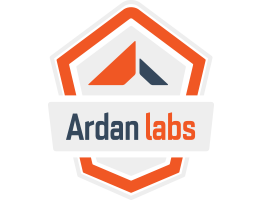#267 — June 20, 2019 |
Golang Weekly |

|
|
Quick Go Performance Improvements — These tips are sold as "techniques you can use to significantly improve the performance of your program with little effort" which are exactly the sort of tips we want :-) Suggestions include reusing previously allocated objects, using Stephen Whitworth |
|
Using Fatih Arslan |

Do You Need Golang or Kubernetes Training? — We offer on-site corporate training for engineers that want to learn Go (Golang) or Kubernetes. Having trained over 4,000 engineers since 2013, we have carefully crafted these classes for students to get as much value as possible. Ardan Labs sponsor |
|
Go 'Creeping In' — Tim Bray works for Amazon but knows a thing or two about the BigTechCos relate to programming languages, and he says he’s seeing a lot of Go things happening with Go. This provoked an extensive Hacker News discussion which is more interesting than the piece itself. Tim Bray |
|
Wire 0.3.0: Compile-Time Dependency Injection for Go — Wire’s job is to simplify the management of initialization code when doing dependency injection. With this latest release, Wire goes into beta and promises API stability going forward. |
💻 Jobs |
|
Go Backend Engineer - API Development (Berlin, Germany) — As a Go Backend Engineer, you will design and develop next-generation tooling to enhance our team's performance through technology. Zalando |
|
Land a New Dev Job on Vettery — Vettery specializes in tech roles and is completely free for job seekers. Vettery |
📘 Articles & Tutorials |
|
Generating Sequence Diagrams From Tests in Go — If you are into sequence diagrams (and who isn’t?) this is a cool, relatively non-intrusive way to generate them for your Go project. Infinity Works |
|
Creating gRPC Interceptors in Go — When you’re working with HTTP APIs, having middleware to work with requests can be helpful - interceptors essentially act in the same way for gRPC instead. David Bond |
|
How to Deploy a Resilient Go App to DigitalOcean Kubernetes DigitalOcean sponsor |
|
Making a Smarter 'Smart' Thermostat with Go, Lambda, and SAM — While not a perfect fit, this is a great example of what you can do quickly today with serverless and a small amount of code. Joshua Barratt |
|
Handling Netlify Form Submissions with Go-Powered Lambda Functions — Netlify makes it easy to handle form submissions with AWS Lambda and you don’t even need an AWS account. Camilo Payan |
|
▶ Porting Go to netbsd/arm64 — The audio is poor and this is very niche, but I suspect a few of you will appreciate this as it digs into the problems involved in porting Go. Maya Rashish |
|
What Go Does and Does Not Have — The question is: Will the “does not have” list change at 2.0? Amrit Pandey |
|
Communicating Between Go and Python (or R) Matthew Mahowald |
|
An Easier Way to Run ASP.NET MVC 5 Apps on Linux with Go Dominic St-Pierre |
🔧 Tools & Code |
|
govalidator: Validate Go Request Data with Simple Rules — Inspired by Laravel’s request validation. Saddam H |
|
gocov 1.0: A Code Coverage Reporting Tool — It’s been around for years but has just reached the 1.0 milestone (though the only update has been gaining a Andrew Wilkins |
|
BigCache 2.0: An Efficient Cache for Gigabytes of Data — A concurrent, evicting in-memory cache built in Go. There’s an HTTP server package available too if you want to make it available as a service. Allegro Tech |
|
Getting Started: Writing Data to InfluxDB InfluxData sponsor |
|
Olivia: An Open Source Neural Network-Based Chatbot Olivia |
|
webdav: Simple Go WebDAV Server — WebDAV is a protocol for remote file manipulation, but you already knew that. Henrique Dias |
|
go-xmpp: A Native Go XMPP Library — XMPP is a platform agnostic messaging and presence protocol. Fluux |
|
WGS84: Coordinate Conversion and Transformation — Well, I’ve learnt something today! WGS84, ETRS89, OSGB36 and DHDN2001 are all different geographic coordinate systems and this Go package allows you to transform them in various ways. Malte Wrogemann |
|
